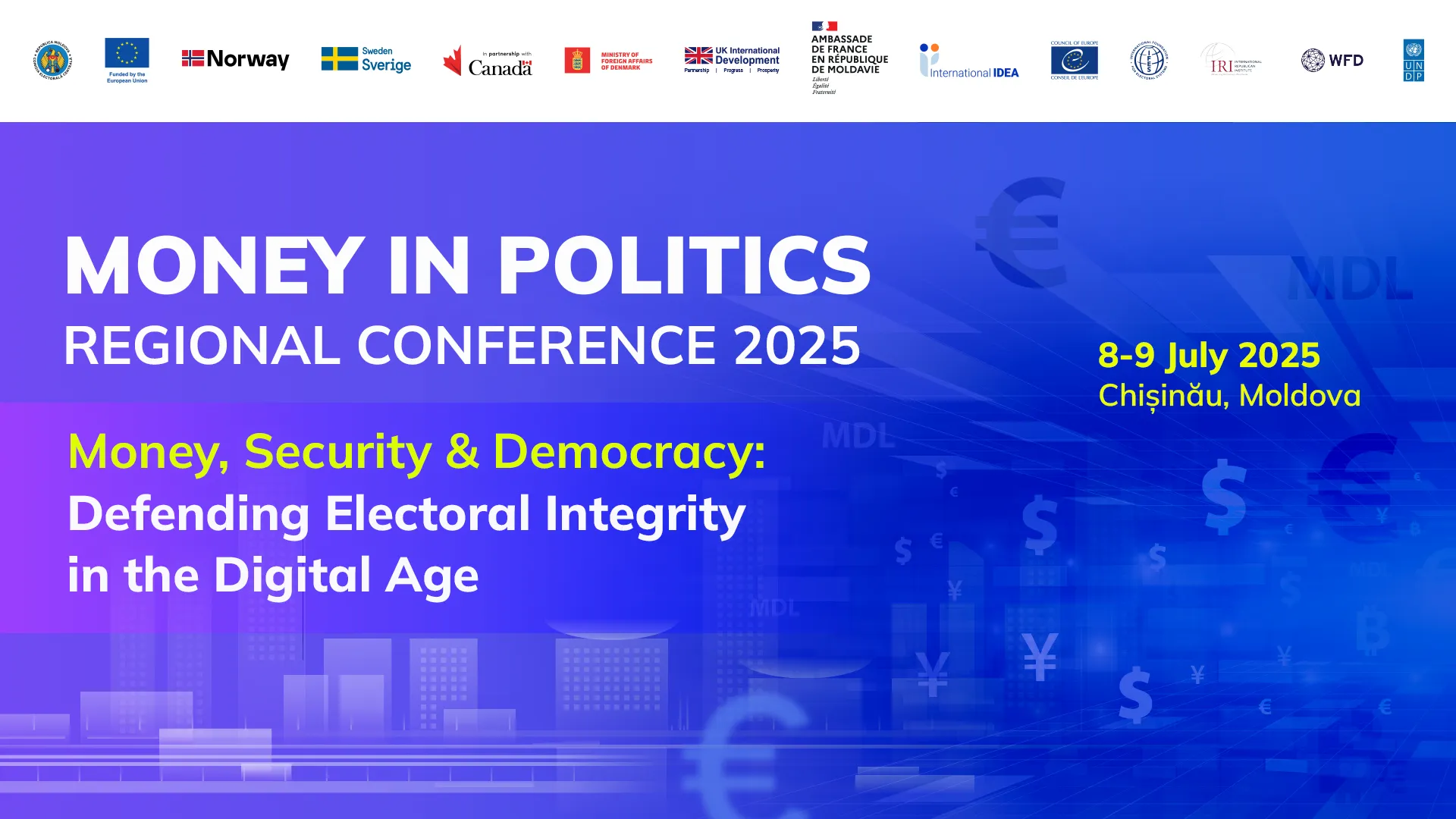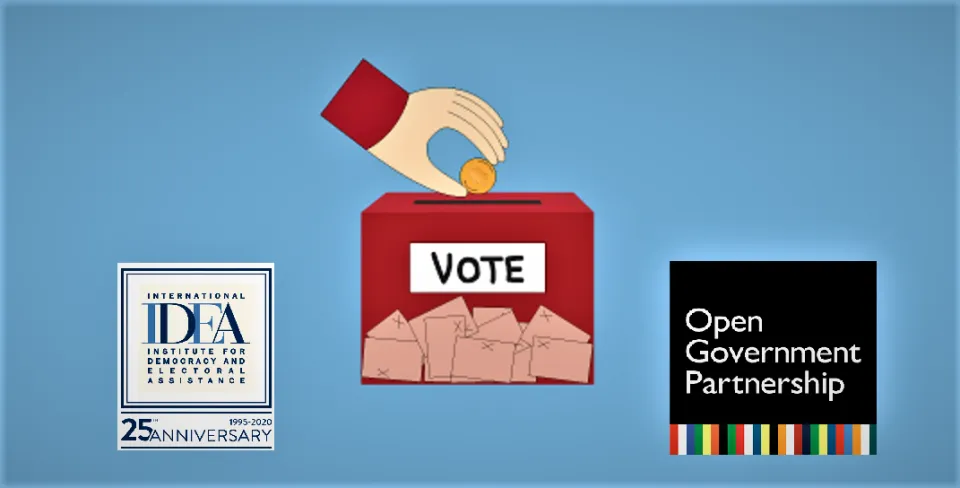Regional Conference on Money in Politics 2025 Money, Security & Democracy: Defending Electoral Integrity in the Digital Age

In the current geopolitical climate, democracies in Eastern Europe face increasing threats to democratic institutions through opaque political financing, third-party influence, and hybrid interference strategies. As elections in the region become key targets for manipulation, safeguarding electoral integrity requires integrated approaches that uphold fundamental rights and liberties, while ensuring that online media and networks, and digital financial technologies are adequately regulated.
The 2025 edition of the Money in Politics conference, Money, Security & Democracy: Defending Electoral Resilience in the Digital Age, offers a platform for peer exchange and strategic dialogue at the intersection of political finance, electoral security, and digital resilience. This year’s edition will delve deep into the risks related to online electoral campaigns, illicit financing of politics in the online space, foreign interference, use of cryptocurrencies, vote buying, and disinformation. Recent electoral cycles across the region have illustrated both the power and the pitfalls of digital political finance. In many cases, official candidates were outspent by unregistered actors, disinformation was amplified through coordinated online campaigns, and reporting mechanisms failed to capture the true scale of spending. These developments highlight the urgent need for more adaptive and comprehensive regulatory approaches.
In this context, the European Union’s Digital Services Act (DSA), Digital Markets Act (DMA), and the Regulation on the Transparency and Targeting of Political Advertising (TPA) provide forward-looking frameworks that promote greater transparency, accountability, and integrity in the digital campaign space. For Eastern European countries with aspirations of joining the EU, these regulations have already become part of the acquis communautaire—mandatory standards that must be transposed into national legislation and regulatory practice. However, full enforcement mechanisms will only come into effect after accession. This creates an urgent need to develop and implement effective interim solutions that can mitigate current risks and strengthen electoral integrity. Enhanced cross-border cooperation, smarter use of data tools, and stronger civil society oversight must complement legal and regulatory reforms.
The two-day event will take place on 8–9 July 2025 in Chișinău, Republic of Moldova, at the Urban Business Center, and is hosted by the Central Electoral Commission of Moldova, together with a set of international assistance providers such as International IDEA, UNDP, the Council of Europe, IFES, the Westminster Foundation for Democracy and International Republican Institute.
The 2025 edition will provide a platform for peer exchange and strategic dialogue, aimed at confronting digital-era challenges and advancing a shared agenda for transparency, integrity, and electoral resilience. By bringing together key actors from across Eastern Europe, the conference will support the identification of stronger safeguards, smarter oversight, and more coordinated responses to the growing threats facing democracies in the region and beyond.
View the main event page: 2025 Money, Security & Democracy Conference
Watch the conference LIVE below.





